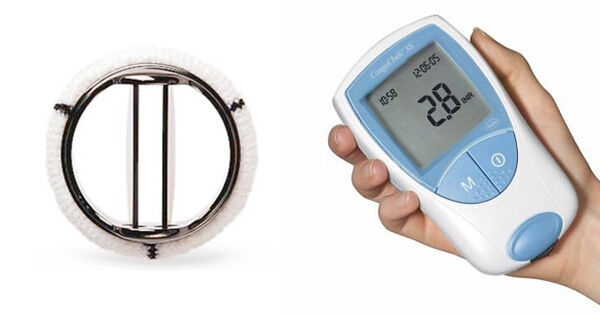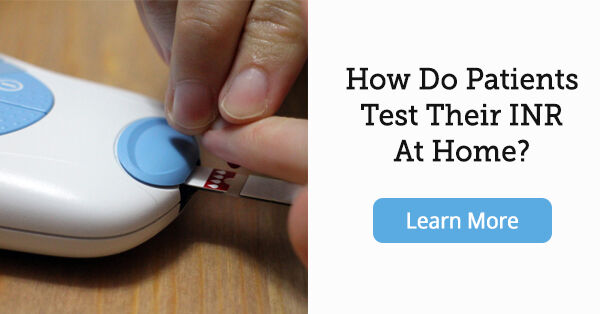Mechanical Heart Valve Replacements & INR Home Testing: Top 11 Facts
Written By: Adam Pick, Patient Advocate, Author & Website Founder
Published: November 17, 2020
When a heart valve cannot be repaired, patients are typically presented with the choice of a mechanical or a tissue valve replacement. Needless to say, this is a very important and personal choice that can require lengthy consideration specific to the patient’s age and lifestyle.

Specific to mechanical heart valve replacements… I often receive patient questions about the valve durability, the use of blood thinners and home INR testing services.
During the COVID-19 pandemic, the importance of answering these questions has become even more critical as home INR test services can provide mechanical valve patients a convenient way to “socially distance” and minimize the risk of coronavirus infection.
For this reason, I reached out to two heart valve specialists to provide you with eleven important facts about mechanical valves, blood thinners and home INR testing during the pandemic.

Our panel includes:
- Dr. Vinay Badhwar – Gordon F. Murray Professor and Chair, Department of Cardiovascular and Thoracic Surgery, West Virginia University and Chair of the WVU Heart and Vascular Institute.
- Dr. Marc Gerdisch – Chief of Cardiovascular and Thoracic Surgery at Franciscan Health in Indianapolis, Indiana.
1. What are the advantages of a mechanical valve replacement compared to a biological valve replacement?
Dr. Marc Gerdisch: When a valve cannot be repaired, whether aortic or mitral, younger patients experience a survival advantage from mechanical valve implantation, over tissue valves (bioprosthetic valves). The reason is quite simple. Mechanical valves do not deteriorate and tend to last a lifetime.
Dr. Marc Gerdisch: Bioprosthetic valves, on the other hand, are vulnerable to a person’s immune response and begin to interact the moment they are implanted. Young people have an active immune system that can attack the foreign tissue of a bioprosthetic valve, resulting in more rapid deterioration than would occur in someone older. Furthermore, our bodies have a natural tendency to deposit calcium on sites found on the surface of glutaraldehyde treated tissue (glutaraldehyde is used to toughen the animal tissue). Combining accelerated deterioration of the tissue valve with the likelihood of being alive longer creates a recipe for valve dysfunction and the need to re-replace the valve.
Dr. Vinay Badhwar: Mechanical valves remain a standard and life-saving therapy for thousands of patients. It remains the most appropriate option for many patients. At a high level, mechanical valves have superior durability to biological valves made from porcine (pig) or bovine (cow) tissue.
2. Is there a specific type of patient that might select a mechanical heart valve replacement over a tissue valve?
Dr. Vinay Badhwar: The evidence is clear to guide these decisions specific to mechanical valve replacement selection:
- Patients that are medically appropriate to take oral anticoagulation (warfarin)
- Patients with significant longevity potential (i.e. younger than 65 years of age)
- Younger patients undergoing complex redo operations where another operation may be of prohibitive risk
- Young patients with small aortic root not otherwise amenable to an aortic root enlargement procedure in whom a future valve-in-valve TAVR procedure would be ill-advised (size less than 23 mm)
- Patients who need a heart valve replacement in whom oral anticoagulation is already needed for other medical conditions
3. Why do mechanical valve patients need to be on blood thinners?
Dr. Marc Gerdisch: Mechanical valves require anticoagulation (blood thinners) with warfarin (also known as Coumadin) because the surfaces of the valve are more thrombogenic. Thrombogenic means a greater tendency to form a blood clot which could lead to a stroke. When the stroke risk related to a replacement valve is compared between mechanical valves on warfarin and bioprosthetic valves, it is the same. Most, but not all patients, with bioprosthetic valves do not require warfarin. So, in general terms, the choice for patients is ultimately between the risk of blood thinners (bleeding) and the risk of bioprosthetic valve deterioration.

4. What are your surgical outcomes for patients that choose a mechanical valve?
Dr. Vinay Badhwar: Excellent patient outcomes. My results with targeted oral anticoagulation have been equivalent to results of biologic valves in the short-term but superior to most biological valves in the long-term (i.e. reoperation)
Dr. Marc Gerdisch: During the past 26 years, the great majority of my valve implants have been bioprosthetic (tissue valves) because most patients have been older. That said, I have implanted several hundred mechanical valves that have performed very well for my patients.
Over the years, I’ve been very fortunate to meet many patients that had excellent results with mechanical valves. One of my favorite patient stories is that of Fred Hoiberg, the former NBA player and coach of the Chicago Bulls. As you will learn in this video, Coach Hoiberg wanted a mechanical heart valve because of the long-term durability of the valve.

5. What should patients know about INR? How do patients manage and test their INR?
As Coach Hoiberg states above, the use of blood thinners has been “no big deal” to manage since his operation. That said, you might be wondering, “What do patients need to manage?”
Specific to the use of blood thinners, patients with mechanical valves are required to regularly test the degree of anticoagulation in the blood commonly referred to as the International Normalized Ratio (INR).
Dr. Vinay Badhwar: International Normalized Ratio or “INR” is a standardized method that all laboratories abide by when assessing the degree of anticoagulation with the normal reading being 1.0. Depending on the type and position of the mechanical valve the target range is between 1.8 to 3.5. If the INR drops below the target range set by your physician or surgeon then one is more exposed to risks of clot formation on the valve.
In patients, the INR can vary with changes in diet, physical activity, concurrent medication, patient compliance and other factors. This is why the INR must be regularly monitored and, if needed, managed.
6. Do you have patients who use home testing services for INR monitoring? What has their experience been with home testing services?
For these reasons, many patients use home (or remote) testing services that enable testing of INR levels anywhere at any time. Many of the home INR tests provide fast, accurate results with a simple fingerstick test.
Dr. Vinay Badhwar: The home monitoring tests are very good. Very convenient for patients. But, it is advised to have regular intervals of formal blood draws (i.e. a few times a year) to calibrate the home devices to assure proper working order.
It’s interesting to note that several recent studies have demonstrated that home INR testing leads to better care for people on warfarin. The results of 22 such studies that included more than 8,000 people found that patients testing their INR remotely had a 42% lower risk of new blood clots, a 12% lower risk of major bleeding, and a 26% lower risk of death.
7. How is remote monitoring helping patients during the COVID-19 pandemic?
The COVID-19 pandemic has caused significant disruptions in healthcare. However, the use of home monitoring devices for patients with mechanical valves has provided an efficient, effective and protective process for INR testing.
The advantages of using home monitoring during COVID-19 include:
- Continuous testing. Patients maintain an uninterrupted INR testing schedule that is not dependent upon the adjusted schedules (or operating hours) of in-person testing facilities that may be constrained by local, state or national shelter-in-place orders or mandates.
- Trusted and reliable results. The INR meters for home monitoring are the same devices often used in a doctor’s office or testing clinics. So, the standard of care and reliability of test results is the same.
- Convenience. Patients are not required to travel to a testing facility.
- Comfort. Patients have “peace of mind” knowing their INR levels will be monitored during the COVID-19 pandemic. (As you may know, many patients were not able to get tested for several months during the beginning of the pandemic as testing facilities were not open.)
Perhaps the most important benefit of remote self-testing during the COVID-19 pandemic is that patients are not exposed to a potential infection. The ability to perform INR testing remotely protects the patient from this very contagious coronavirus.
8. How does a home INR test work?
The steps to perform a home INR monitoring test are quite simple. All you need is your finger, a test strip, a small lancet and the meter. To see how it works, click here.
9. What companies provide home INR monitoring services?
It’s easy to get started. Simply ask your doctor about remote INR monitoring and whether it’s right for you.
There are a few companies that provide home INR monitoring services. One of the leading home INR test services that I’m familiar with is Acelis Connected Health. Acelis Connected Health does a great job working with your doctors to get you a home monitoring device quickly and easily.
To learn how you can get started with home INR monitoring, click here. Or, you can call Acelis Connected Health at (800) 504-4032.
10. Are home INR tests covered by Medicare or insurance?
Another common question I get is, “Are home INR testing services covered by Medicare or insurance?”
Great news!!! I’m happy to share that the Acelis Connected Health home INR testing is covered by Medicare and many private insurance companies for patients with mechanical heart valve replacements.
11. What else should patients know about home INR testing services?
I encourage you to keep learning about home INR testing services. Here are several helpful links that can help you learn important facts about home INR monitoring:
- How does home INR testing work?
- Frequently asked questions about home INR testing?
- Get started with home INR testing
I hope this helped you learn more about mechanical heart valve replacements and the use of home INR monitoring for patients considering mechanical heart valves.
I would like to extend a special thanks to Drs. Badhwar and Gerdisch for sharing their clinical experience and research with our community!
Keep on tickin!
Adam





